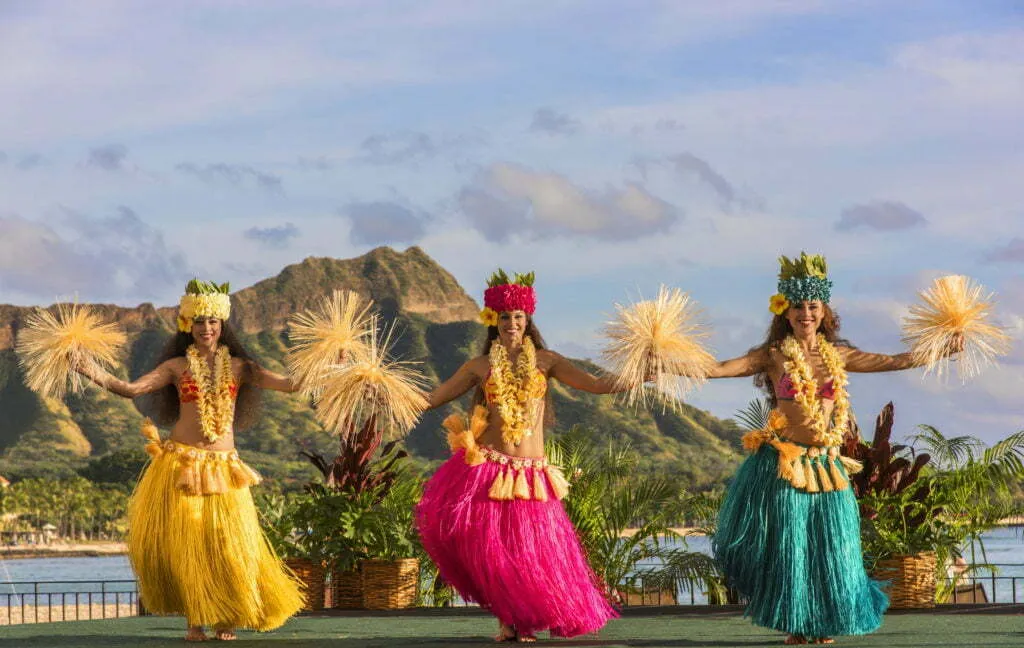Hawaii, the jewel of the Pacific, is renowned not only for its magnificent natural beauty but also for its unique cultural treasures. Beyond the white sandy beaches and enchanting Hula dances lies a long history and a profound philosophy of life that has shaped the Hawaiian people. Join “Du lịch khắp thế gian” (Travel the World) as we explore the ancient Hawaiian lifestyle, from ancient beliefs to distinctive customs and traditions, to gain a deeper understanding of this special cultural identity.
Ancient Hawaiians lived in harmony with nature, deeply respecting and connected to the land, the ocean, and their gods. Their lives revolved around family, community, and traditional values passed down through generations. This article will take you on a journey back in time, exploring key aspects of ancient Hawaiian life, from the Huna philosophy to daily activities, to fully appreciate the beauty and richness of Hawaiian culture.
Huna Philosophy – Unlocking the Hawaiian Spirit
Huna, in Hawaiian, means “secret” or “hidden knowledge.” It is an ancient system of philosophy, passed down orally through generations, comprising living principles that help people achieve harmony with themselves, their community, and the universe. Huna is not just a religion or belief system, but a way of life, a lens through which to view the world around us.
The seven basic principles of Huna are:
- Ike (ee-kay): The world is what you think it is. Our beliefs create our reality.
- Kala: There are no limits. Our potential is limitless; limitations are self-imposed by our minds.
- Makia (mah-kee-ah): Energy flows where attention goes. Focusing on positive things creates positive results.
- Manawa: Now is the moment of power. The power to change is in the present moment.
- Aloha: To love is to be happy with. Love and compassion are key to harmony.
- Mana: All power comes from within. Everyone has inner power to change their lives.
- Pono: Effectiveness is the measure of truth. What works is the truth.

Huna philosophy is not just abstract concepts but is reflected in the daily lives of Hawaiians. From how they treat nature and communicate with each other to how they solve problems, everything is imbued with the spirit of Huna.
Daily Life of Ancient Hawaiians
The daily life of ancient Hawaiians was closely tied to the ocean and the land. They were skilled fishermen and farmers, knowing how to sustainably utilize natural resources.
- Agriculture: Ancient Hawaiians cultivated various crops, including taro, sweet potatoes, bananas, sugarcane, and coconuts. They used complex irrigation systems to water their fields, ensuring a stable food supply.
- Fishing: The ocean was a vital source of life for Hawaiians. They employed many different fishing techniques, from nets and lines to fish traps. They were also skilled navigators, capable of sailing far offshore in meticulously crafted outrigger canoes.
- Crafts: Ancient Hawaiians were renowned for their exquisite craftsmanship. They made vibrant lei flower necklaces, durable lauhala mats, and jewelry from shells, bones, and animal teeth.
Beliefs and Religion
Ancient Hawaiian beliefs revolved around gods (akua) and ancestral spirits (ʻaumākua). They believed that gods governed every aspect of life, from weather and harvests to health and fortune.
- Major Gods: Kane, Lono, Ku, and Kanaloa were the four main gods in Hawaiian religion. Each god represented a different aspect of the universe and had specific rituals and festivals to honor them.
- Ancestor Spirits: Ancient Hawaiians believed that the spirits of their ancestors (ʻaumākua) were always watching over and protecting them. They regularly made offerings and prayers to receive ancestral blessings.
- Heiau: Heiau were sacred temples where ancient Hawaiians performed religious rituals, offerings, and prayers. Heiau were often built on sacred sites with special historical or cultural significance.
Arts and Entertainment
Arts and entertainment played a significant role in the lives of ancient Hawaiians. They had many unique art forms that reflected their cultural identity and community spirit.
- Hula: Hula is the traditional dance of Hawaii, often performed to tell stories about history, mythology, and love. Hula is not just a form of entertainment but also a way to connect with gods and ancestral spirits.
- Music: Traditional Hawaiian music used instruments such as the ukulele, pahu drums, and conch shells. Songs often told stories of love, nature, and daily life.
- Storytelling: Storytelling was an important form of entertainment in ancient Hawaiian society. Storytellers (kahuna) played a crucial role in passing down knowledge, history, and culture to future generations.
Change and Cultural Preservation
Contact with Western culture brought significant changes to the lives of Hawaiians. Many traditional customs have been lost, and the Hawaiian language gradually faded. However, in recent years, there have been significant efforts to preserve and revitalize Hawaiian culture.
- Language Revitalization: Hawaiian language immersion schools (kula kaiapuni) have been established to teach Hawaiian to children, helping to prevent the language from becoming extinct.
- Revival of Traditional Rituals: Many traditional rituals and festivals have been revived and reorganized, helping Hawaiians reconnect with their past and preserve their cultural identity.
- Cultural Education: Museums, cultural centers, and community organizations are working to educate the public about Hawaiian history and culture, helping people better understand the value and importance of preserving cultural heritage.
Conclusion
The journey to explore the life of ancient Hawaiians is fascinating and meaningful. We have seen the deep connection between people and nature, respect for ancestors and gods, and the spirit of Aloha that always permeated daily life. Learning about the past helps us better understand the present and appreciate the unique cultural values of Hawaii. Come and experience Hawaii, not only to enjoy its natural beauty but also to fully appreciate the beauty of a long-standing and richly distinctive culture.